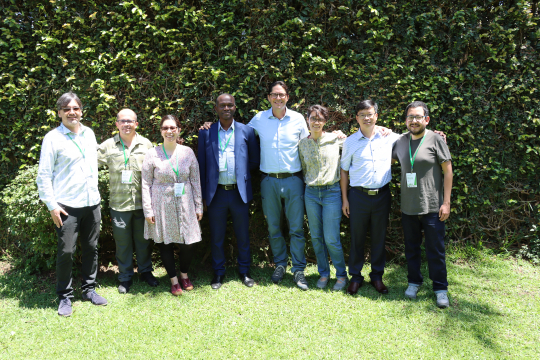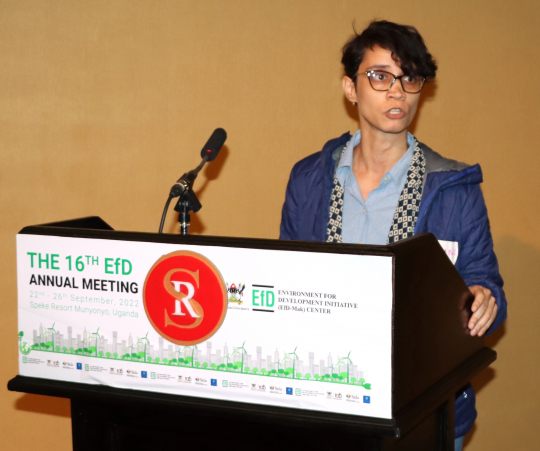The CMaR collaborative program (Sustainable Management of Coastal Marine Resources) widens its scope and becomes SCOPE. The new name stands for Sustainable Consumption and Production. While CMaR focused primarily on plastic pollution in the oceans, SCOPE will encompass three themes: Waste, sustainable lifestyles, and circular economy. The reshaped and renamed collaborative was presented in an open session at EfD’s Annual Meeting in Uganda.
One of the leaders of SCOPE, Róger Madrigal, Center Director of EfD Central America, started the session by underlining the urgency of this collaborative:
“Unsustainable patterns of consumption and production are the root cause of three planetary crises: climate change, biodiversity loss, and pollution,” he said. He referred to a recent UN report that concluded that one-third of all food produced ends up wasted and by 2050 almost three planets would be required to provide the natural resources needed to sustain current lifestyles.
Aligns with SDG 12
“SCOPE uses economic tools and promotes policy dialogues to make transformative changes towards more sustainable lifestyles, reduced food waste, and circularity in societies of the Global South,” he said.
The SCOPE collaborative aligns perfectly with SDG 12, Responsible consumption and production, which is about doing more and better with less. It is also about decoupling economic growth from environmental degradation, increasing resource efficiency, and promoting sustainable lifestyles.
Continues to work for policy impact
The CMaR collaborative has been productive and also successful in achieving policy impact. One of many good examples is the Framework for selecting and designing policies to reduce marine plastic pollution in developing countries. This was selected by The Global Plastics Action Partnership (GPAP) as a roadmap for tackling global plastics pollution. (Read more about this!)
This collaborative has worked diligently to reach out to civil society, policymakers, and other stakeholders. They have produced press releases, infographics, videos, social media, workshops, and even books for school children. All of this will of course be continued in the framework of SCOPE.
Broad scope of topics
The collaborative is hosted by EfD Central America, but research undertaken within the collaborative is indeed global. There are several projects, both ongoing and in the planning stage, that involve researchers in for example India, Chile, Costa Rica, and Vietnam as well as EfD’s new partner Wageningen University in the Netherlands.
The projects within the program cover indeed a broad scope. Some examples of past, current, and planned projects include refund schemes for batteries, nudging households to segregate waste at the source, economic and health impacts of landfills, celebrity endorsements of pro-environmental behavior, the adoption of electric vehicles, food waste, educating school children on the use of plastic and much more.
Update strategy and look for funding
“Our immediate plans now are: to identify funding and policy engagement opportunities for cross-cutting research on sustainable consumption and production, update SCOPE´s strategic plan, and design and implement a dissemination strategy for our work,” explains Francisco Alpízar, one of the leaders of SCOPE.
One example of new funding opportunities is the Africa Circular Economy Facility (ACEF) which is the newest climate change initiative within the African Development Bank Group. According to the SCOPE members, there is as of today, not much research on circular economy in the Global South.
SCOPE welcomes new members. If you are interested in participating in this collaborative program, contact: pablo.evia@catie.ac.cr
Text and photos by: Petra Hansson

